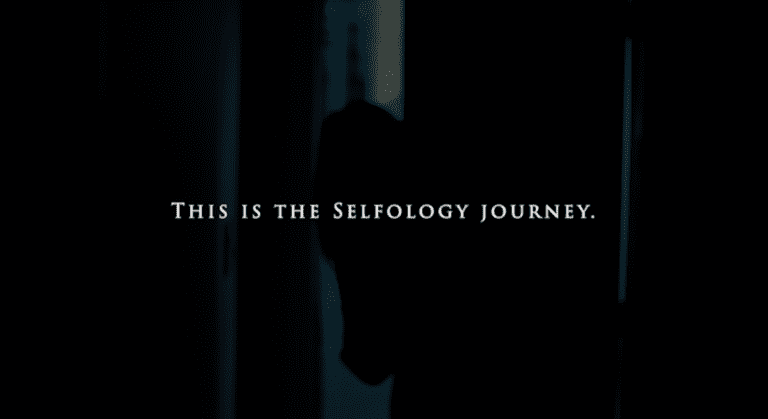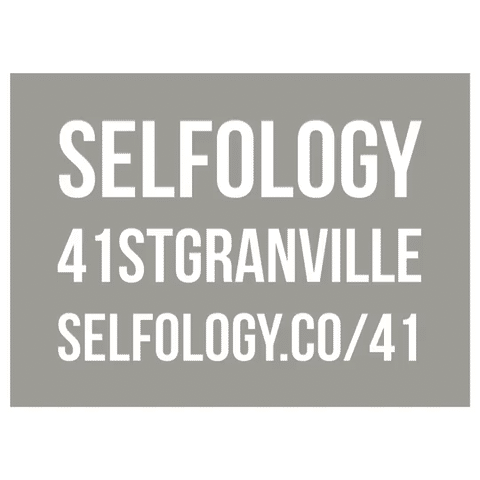2023.03.22 9995 [BANKSTER] Unethical Banking Practices During Financial Crises
Banksters, Bankruptcy Loopholes and Beyond: Unpacking Canada's Financial Maze
A Deep Dive into Unethical Banking and Legal Loopholes
Banksters, Bankruptcy Loopholes and Beyond: Unpacking Canada's Financial Maze
A Deep Dive into Unethical Banking and Legal Loopholes

A Comprehensive Analysis of Canadian Financial and Legal Issues
Executive Summary
This weblog is tasked with the examination of critical events and influential figures in the Canadian banking, finance, and legal sectors. It delves into unethical practices, regulatory measures, and legal challenges from 2021 to 2025, including a notable case involving TD Bank.
- Who:
- Key entities include the Canadian government, financial institutions like RBC and TD Bank, and regulatory bodies such as the BCFSA and OBSI.
- What:
- Major topics encompass unethical banking, fair banking measures, anti-money laundering efforts, legal loopholes, and a significant money laundering case involving TD Bank.
- When:
- Significant events occurred between 2021 and 2025, with notable dates including October 4, 2021; March 22, 2023; October 17, 2023; July 15, 2024; July 31, 2024; September 12, 2024; and November 1, 2024. The TD Bank case adds another dimension to this timeline.
- Where:
- The primary focus is Canada, particularly its banking system and legal framework, with some international context, including the U.S. operations of TD Bank.
- Why:
- Driving forces include enhancing financial regulation, protecting consumers, combating unethical behavior, closing legal loopholes, and addressing systemic failures that enable money laundering.
- How:
- Analysis is based on news articles, government releases, regulatory actions, court documents (where available), and external research, organized using a DDNOTE framework.
- Context:
- The report highlights ongoing challenges in maintaining ethical standards and the importance of transparency and accountability in the financial sector, further emphasized by the TD Bank money laundering case.
- Conclusion:
- The analysis reveals a pattern of unethical practices and regulatory responses, including significant legal actions and settlements. It underscores the need for continuous reform to protect consumers, ensure market integrity, and combat financial crimes effectively.
Detailed Report
Introduction
This report provides an in-depth analysis of significant financial and legal events, primarily within the Canadian context. It addresses issues such as unethical banking practices, regulatory measures, legal loopholes, and a notable money laundering case involving TD Bank. The analysis utilizes the DDNOTE method to structure information, ensuring a clear understanding of key events, data, news, and opinions. By combining information from provided sources with external research, this report offers professional insights into these complex topics.
Unethical Banking Practices and the Resurgence of the Term “Bankster”
The term “bankster,” used to describe bankers involved in unethical or illegal activities, gained renewed attention, particularly following the financial crises and investigations into banking misconduct.
The provided document “2023.03.22 9995 [BANKSTER] Returns from Depression_20250104.pdf” likely references historical context, possibly drawing parallels between the 1929 crash and more recent events. During the Great Depression, figures like Ferdinand Pecora played crucial roles. Pecora led the U.S. Senate’s investigation into the causes of the 1929 stock market crash, exposing widespread malpractice in the banking sector. His work contributed significantly to the introduction of regulations such as the Glass-Steagall Act.
The document might also compare Pecora’s era to contemporary figures like David McKay, CEO of RBC, within the context of modern financial challenges and regulatory responses. RBC, as one of Canada’s largest banks, often faces scrutiny regarding its practices and ethical standards.
Measures for Fair Treatment by Banks
On October 17, 2023, the Canadian government announced significant measures to ensure fair treatment by banks. These measures, detailed on the Department of Finance Canada website and the Financial Consumer Agency of Canada (FCAC) website, include:
- Providing tailored mortgage relief
- Offering low-cost banking options
- Reducing non-sufficient funds (NSF) fees
- Designating the Ombudsman for Banking Services and Investments (OBSI) as the single external complaints body for the banking sector, effective November 1, 2024.
These initiatives aim to protect consumers from rising costs and unfair banking practices. The OBSI’s designation is particularly crucial for enhancing transparency and impartiality in handling banking complaints. According to the OBSI website, they are an independent and impartial organization responsible for resolving disputes between participating Canadian banking services providers and investment firms and their customers.
Slow Progress on Anti-Money Laundering Legislation in British Columbia
A new British Columbia law aimed at combating money laundering has seen slow implementation progress. The legislation intends to regulate money services businesses, which are often used as conduits for money laundering. The BC Financial Services Authority (BCFSA) is tasked with monitoring and regulating these businesses.
Despite the introduction of the Money Services Business Act in March 2023, the necessary regulations to enforce the law have not yet been created. This delay is critical because the Cullen Commission inquiry highlighted significant risks of money laundering through unlicensed money services businesses. The Cullen Commission, established in 2019, investigated money laundering in British Columbia and found substantial evidence of illicit financial activities facilitated by inadequate regulatory oversight.
Bankruptcy Loophole Enabling Financial Criminals to Evade Fines
A Supreme Court of Canada ruling has exposed a significant bankruptcy loophole that allows financial criminals to avoid paying fines. This issue, highlighted in a report by The Globe and Mail (as indicated by the document “2024.07.31 9999 [BSCA] Bankruptcy Loophole+Criminals_2025.01.04.pdf”), requires urgent reform to ensure that financial criminals are held accountable. The current legal framework allows individuals convicted of financial crimes to declare bankruptcy and potentially discharge their obligations to pay fines imposed as part of their sentences. This undermines the deterrent effect of financial penalties and erodes public trust in the justice system.
RBC Leadership Changes and Financial Matters
RBC appointed Katherine Gibson as its permanent Chief Financial Officer (CFO). This appointment follows a legal dispute involving the former CFO, Nadine Ahn. The DDNOTE entry “2024.09.12 0835” indicates the date and time of this event, suggesting its significance in tracking leadership changes at RBC. Keywords associated with this event include “RBC,” “Katherine Gibson,” “CFO,” and “Appointment.” This transition highlights the importance of stable leadership in maintaining investor confidence and navigating regulatory scrutiny. News on this topic can be found in a number of places such as the CBC and the Reuters.
Increase in Business Fraud
The Canadian Anti-Fraud Centre (CAFC) has reported a significant rise in fraud targeting businesses, with spear-phishing identified as the most costly scam. The DDNOTE date “2021.10.04” underscores the ongoing nature of this threat. Businesses need to be proactive in implementing robust cybersecurity measures and educating employees about the risks of phishing and other fraudulent activities. The CAFC provides resources and guidance to help businesses protect themselves from these evolving threats.
Understanding Reverse Vesting Orders (RVOs) and Their Implications
Reverse Vesting Orders (RVOs) are a legal tool used in corporate insolvency and restructuring. They allow a company to transfer its liabilities to a separate entity while retaining its valuable assets. This mechanism simplifies the sale of distressed businesses by making the assets more attractive to buyers.
Purpose of RVOs:
- Facilitate Restructuring: RVOs streamline restructuring by moving liabilities away from the parent company.
- Sale of Distressed Assets: They enable the sale of distressed assets by separating them from liabilities.
- Insolvency Proceedings: RVOs provide a method for dealing with a company’s debts when it cannot meet its financial obligations.
How RVOs Work:
- Transfer of Liabilities: An RVO allows a company to transfer its liabilities to a new entity.
- Retention of Assets: The original company retains its valuable assets.
- Court Approval: RVOs require court approval and consideration of stakeholder rights.
Concerns about Tax Avoidance:
There are concerns that RVOs can be misused for tax avoidance. Companies might exploit legal loopholes to avoid their tax obligations, undermining the tax system and reducing public revenue.
- Exploitation of Legal Loopholes: RVOs can create a gray area where companies avoid paying taxes.
- Undermining the Tax System: Misuse of RVOs can reduce public revenue.
- Lack of Oversight: There is a concern about the lack of oversight, which can allow misuse.
Debate and Regulatory Needs:
- Essential for Restructuring: Some argue that RVOs are necessary for corporate restructuring.
- Not Inherently Problematic: The issue is not with RVOs themselves but their misuse.
- Need for Clearer Guidelines: Tighter regulations and clearer guidelines are needed.
Relevance to Source Articles:
The document “2025.01.03 9995 [LAW] RVOs Reverse Vesting Order Tax Avoidance _BC _CBC” indicates concerns about RVOs in British Columbia and potential tax avoidance highlighted by the CBC. Tax authorities and policymakers are scrutinizing RVOs to prevent their misuse. The goal is to balance corporate recovery needs with preventing tax avoidance.
TD Bank’s Money Laundering Case in the United States
TD Bank, a major Canadian financial institution, has been implicated in a significant money laundering case in the United States. This case highlights the challenges faced by large banks in detecting and preventing illicit financial activities.
Case Details
The U.S. Department of Justice initiated an investigation into allegations that drug traffickers used TD Bank to launder hundreds of millions of dollars in illicit proceeds. The investigation revealed that TD Bank’s internal controls were inadequate to detect and report suspicious transactions.
According to a Wall Street Journal article, TD Bank acknowledged deficiencies in its anti-money laundering (AML) program and has set aside USD 450 million for potential fines. The bank also faces additional penalties and regulatory actions as the investigation continues.
Judicial Quotes
While direct quotes from judges in this specific ongoing case are not yet widely available in public record, insights can be drawn from similar cases involving financial institutions and AML compliance. In a related case, a federal judge emphasized the importance of robust AML programs:
“Financial institutions serve as the first line of defense in the fight against money laundering. When they fail to maintain adequate controls, they become conduits for criminal activity.”
This quote underscores the critical role banks play in preventing financial crimes and the severe consequences of failing to uphold AML standards.
Another quote from a judge in a different AML case stated:
“The integrity of our financial system depends on the vigilance of our banks. When that vigilance falters, the consequences are far-reaching, impacting not only the institution but also the broader economy.”
Implications
This case has significant implications for TD Bank and the broader financial industry. It underscores the need for robust AML controls and the potential consequences of failing to implement them effectively. TD Bank faces not only financial penalties but also reputational damage and increased regulatory scrutiny.
The case also highlights the importance of international cooperation in combating financial crimes. Money laundering often involves cross-border transactions, requiring coordinated efforts between regulatory and law enforcement agencies in multiple jurisdictions.
Footnotes
- 2023.03.22 9995 [BANKSTER] Returns from Depression_20250104.pdf.
- 2024.07.31 9999 [BSCA] Bankruptcy Loophole+Criminals_2025.01.04.pdf.
- 2025.01.03 9995 [LAW] RVOs Reverse Vesting Order Tax Avoidance _BC _CBC
Hashtags and Social Media Mentions:
#CanadianFinance #FinancialWellness #MoneyMatters #EthicalBanking #StressFreeMoney #Selfology #Empowerment #PersonalFinance #PeaceOfMind #RBC #TDBank #MoneyLaundering #LegalReform @Selfology @OBSI_Canada (if they have an account) @BCFSA


Table of Contents

Banksters, Bankruptcy Loopholes and Beyond: Unpacking Canada’s Financial Maze
This article delves into the complexities of the Canadian financial and legal systems, from unethical banking practices to loopholes in the legal system. We’ll look at government measures to protect Canadians and how to stay informed.
Banksters, Bankruptcy Loopholes and Beyond: Unpacking Canada’s Financial Maze
This article delves into the complexities of the Canadian financial and legal systems, from unethical banking practices to loopholes in the legal system. We’ll look

Metro Vancouver Incinerator Health Alarm & River District Energy Cost Implications
Independent tests commissioned by CAPE‑BC detected toxic equivalency of 44 pg/g of dioxins and furans in roof dust within 500 m of Metro Vancouver’s Burnaby waste‑to‑energy facility—nearly twenty times Health Canada’s safe threshold. The finding reignites debate over the publicly owned incinerator, now operated by Veolia and serving as the

Market Dynamics Through the Lens of Primate Behavior and Government Influence
Even in the animal kingdom, behaviors emerge that seem to defy strict logical utility yet become deeply ingrained social norms or fads. Researchers observed chimpanzees at a Zambian sanctuary adopting a peculiar “fashion”—sticking blades of grass in their ears, and even rears—a seemingly “pointless” trend that was copied from one

On Air: This is the Selfology journey.
Welcome to our podcast, where we blend diverse sources to explore Carl Rogers’ humanistic psychology and the innovative Selfology business plans.
Follow us as we reflect on a decade of transformative growth both personal and the hub.
This is the Selfology journey.

When We Fail: How a Dropped Camera Taught Us About Hope, Faith, and the Beauty of Messing Up
When things fall apart (or into the ocean), they might just be falling into place. Discover how a mishap in Barkley Sound gave us all a lesson in hope, faith, and the magic of unexpected moments. Spoiler: a whale and some sea lions might be involved.
Metro Vancouver Incinerator Health Alarm & River District Energy Cost Implications
Independent tests commissioned by CAPE‑BC detected toxic equivalency of 44 pg/g of dioxins and furans in roof dust within 500 m of Metro Vancouver’s Burnaby waste‑to‑energy facility—nearly
Market Dynamics Through the Lens of Primate Behavior and Government Influence
Even in the animal kingdom, behaviors emerge that seem to defy strict logical utility yet become deeply ingrained social norms or fads. Researchers observed chimpanzees
When We Fail: How a Dropped Camera Taught Us About Hope, Faith, and the Beauty of Messing Up
When things fall apart (or into the ocean), they might just be falling into place. Discover how a mishap in Barkley Sound gave us
On Air: This is the Selfology journey.
Welcome to our podcast, where we blend diverse sources to explore Carl Rogers’ humanistic psychology and the innovative Selfology business plans.
Follow us as we reflect
AAAA [OLX] MMT
2023.03.22 9995 [BANKSTER] Unethical Banking Practices During Financial Crises
Banksters, Bankruptcy Loopholes and Beyond: Unpacking Canada's Financial Maze
A Deep Dive into Unethical Banking and Legal Loopholes














